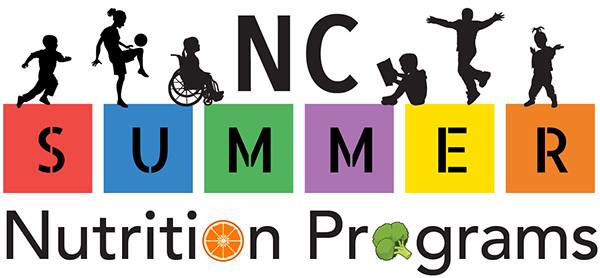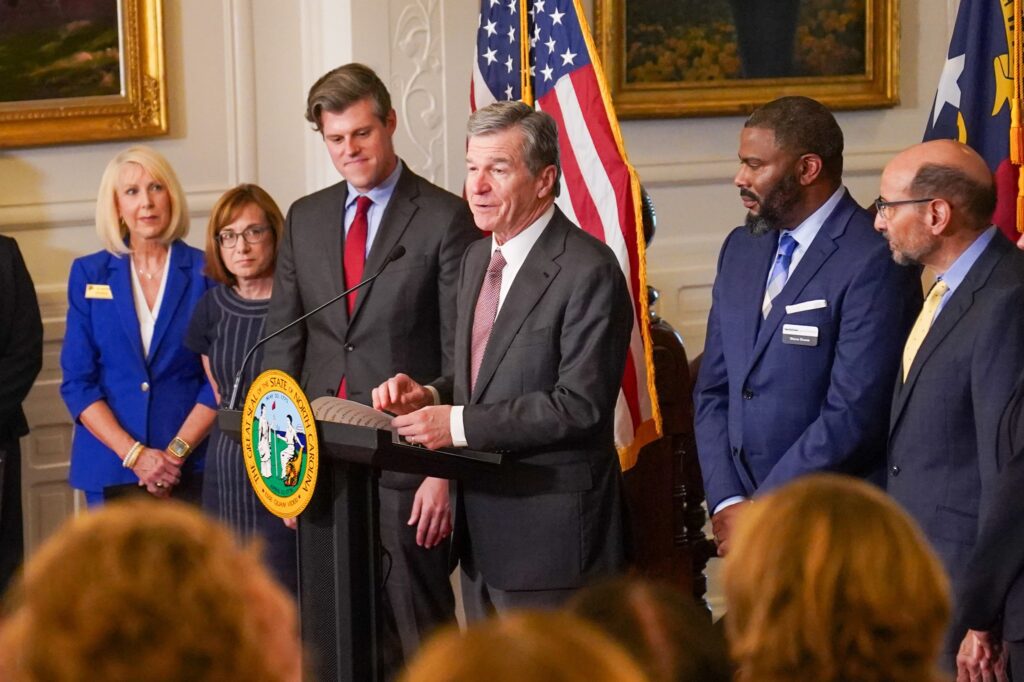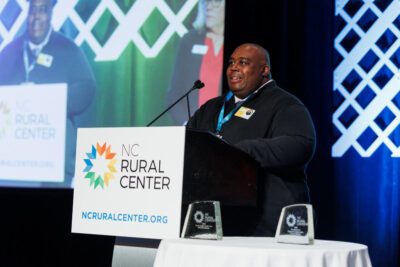
|
|
During the school year, more than 900,000 students rely on the nutritious meals and snacks served in public schools across North Carolina, according to a press release from the N.C. Department of Public Instruction (DPI).
What happens when school is out during the summer?
N.C. Summer Meals Programs
N.C. Summer Meals Programs provide nutritious meals at no cost for children and adolescents ages 18 and younger. Registration and ID are not required. The programs are administered by DPI, with federal assistance from the U.S. Department of Agriculture (USDA).
Summer Meals Programs are “typically located in economically distressed areas to serve the most food-insecure, vulnerable students,” according to a DPI press release. Meal sites include schools, public housing community centers, playgrounds, camps, parks, medical centers, churches, libraries, and other locations.
Here is how you can find nutritious summer meals for kids and teens:
- Text “FOOD” to 304-304 for information in English or “COMIDA” to 304-304 for information in Spanish.
- Use the N.C. Site Finder Map, which is updated weekly thoughout the summer.
- Check your local school district website, social media, or other communications.
- Learn more at DPI’s how to find summer meals webpage.
Individuals and organizations interested in getting involved as sites, activity providers, or volunteers should contact DPI’s Summer Meals Programs team.
Here is additional information regarding N.C. Summer Meals Programs.
SUN Bucks
Gov. Roy Cooper hosted a reception with USDA Food and Nutrition Service Administrator Cindy Long on Tuesday to celebrate North Carolina’s implementation of the SUN Bucks program to provide summer meals for kids.
This new program is administered by the N.C. Department of Health and Human Services (DHHS).

What is SUN Bucks?
According to the DHHS website, “SUN Bucks, also known as Summer EBT (S-EBT), is a new federal program that helps families by giving them money to buy groceries during the summer when children are not in school.”
How does it work?
“Starting in the summer of 2024, families that qualify for this program will get $120 for each child that’s part of the program. This money will be on a card that works like a debit card (called an EBT card). You can use this card to buy healthy food at places like grocery stores, farmers markets, and some online retailers.”
The first SUN Bucks will be issued next week on Friday, June 14, according to the Office of the Governor.
What can you buy?
You can use SUN Bucks to buy:
- Breads, cereals, fruits, vegetables;
- Meat, fish, chicken, and dairy products;
- Bottled water and drinks without alcohol; and
- Seeds and plants that will make food.
SUN Bucks cannot be used to buy beer, wine, liquor, tobacco, things that aren’t food, or food that is hot or prepared.
How do you get SUN Bucks?
Most eligible children will automatically qualify for the SUN Bucks program if they have been approved for free or reduced-price meal benefits during the school year, and no further action will be needed.
For children who do not automatically qualify but may be eligible, DHHS will send an email, text message, or ROBO call to families with instructions on how to apply.
Here is the application.
Do the benefits expire?
Yes! According to the website, “SUN Bucks benefits will expire 122 days after the date they are ‘available,’ after being issued to the household’s EBT or SUN Bucks card, no matter when you activate your card.”
Who are the philanthropic partners of SUN Bucks?
According to the Office of the Governor, Cooper thanked six philanthropic partners in North Carolina who are contributing generously to support SUN Bucks, joining leaders from DHHS and DPI to successfully launch the program.
The partners include the Blue Cross and Blue Shield of North Carolina Foundation, Smithfield Foods, The Leon Levine Foundation, Dogwood Health Trust, Cone Health Foundation, and Brighthouse Financial.
“We applaud North Carolina for stepping up as a leader and implementing Summer EBT in its inaugural year,” USDA Administrator Long said. “This is an unprecedented opportunity to dramatically reduce child summer hunger. We at USDA are excited to be partnering with North Carolina this summer and look forward helping more states come on board for summer 2025.”
“Every dollar counts for families working to put enough food on the table while kids are out of school,” said State Superintendent of Public Instruction Catherine Truitt. “Our goal for the SUN Bucks program is to help make sure no child in North Carolina goes hungry this summer.”
SUN Bucks resources
Here is a toolkit of resources for community partners, county staff, educators, and health care providers.
Here is lots more information including all the frequently asked questions.
N.C. Farm to Summer Challenge
N.C. Summer Meals Programs, agencies, organizations, and families can all participate in the N.C. Farm to Summer Challenge.
Here are the ways you can participate:
SERVE | Incorporate locally grown foods into meals and/or snacks.
TEACH | Teach and/or learn about local food, agriculture, and nutrition through farm to summer educational activities.
POST | Share and/or post about your farm to summer activities. For social media, use #NCFarmtoSummer and tag @NCSchoolMeals, @Ray4NCKids, and @F2SCoalitionNC.
CRUNCH | Register to participate in the 2024 #NCCrunch for Farm to School and Early Care and Education Month in October to taste and learn about North Carolina grown fruits and veggies.
And don’t forget, #NCFarmtoSummer Week 2024 is July 15-19!
Here is a toolkit.
More than nutrition provided
In addition to nutritious meals, N.C. Summer Meals Programs provide fitness and fun through educational enrichment.
The mascot, Ray F. Sun, will be visiting communities across the state to spotlight the importance of summer meals.
Follow @Ray4NCKids on Twitter, Facebook, or Instagram to learn where Ray will be next.
The “F” in Ray’s name stands for food, fitness, fun, and farm-to-summer activities.




